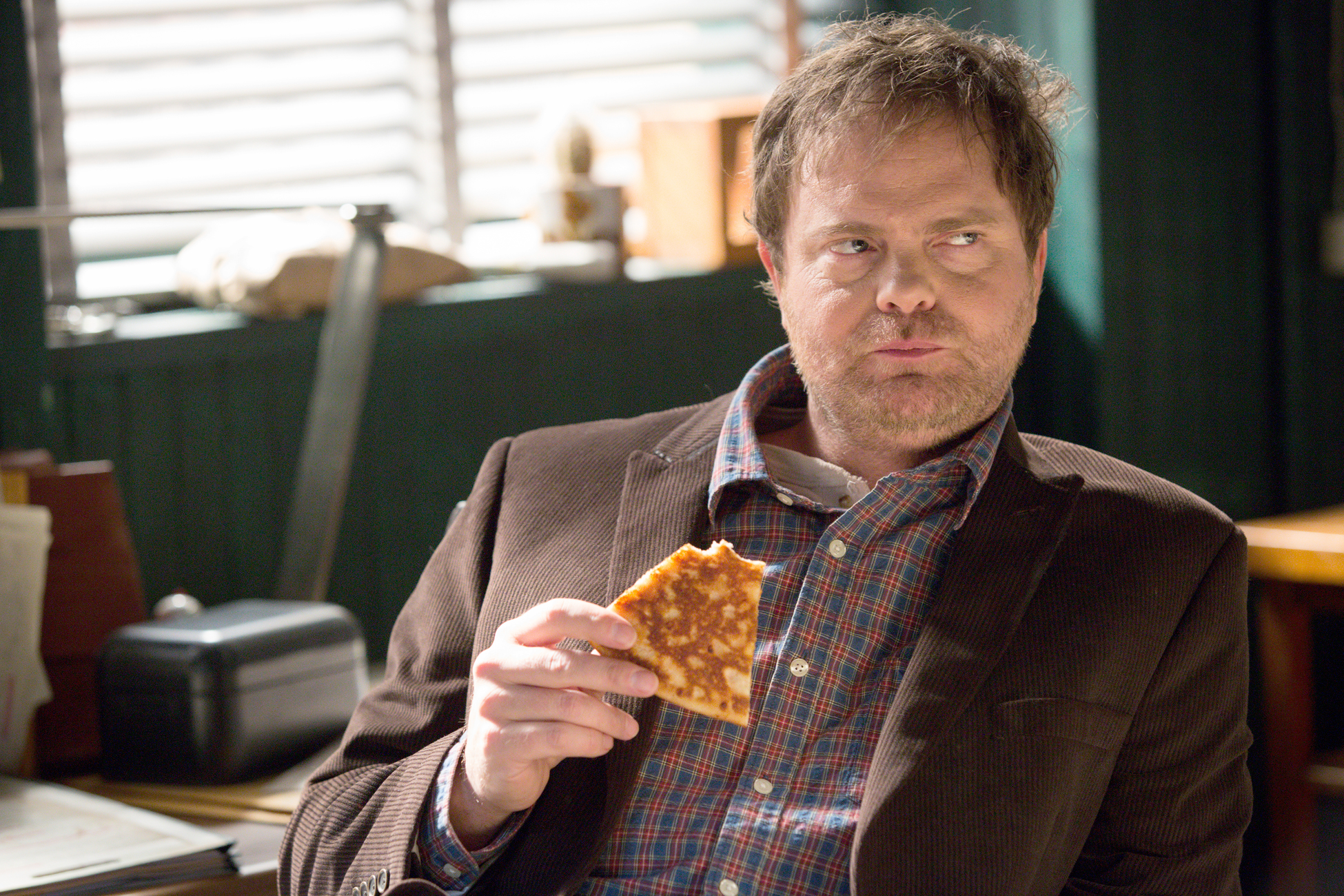
If someone says it’s not about the money, it’s about the money. If someone says it’s not about sex, it’s about sex. And if a network says a new show is not a clone of something, it’s–well, starting Thursdays at 9 p.m. on Fox, it’s Backstrom, with Rainn Wilson as a cranky, insult-spewing cop imitating the House formula with diminishing results.
Backstrom is directly based on the work of Swedish novelist Leif G.W. Persson, but he’s also in the tradition of TV’s Brilliant Jerks–the caustic, abrasive antiheroes we grow to love, or at least love to watch, because their antisocial tics directly relate to their success on the job. In the case of House M.D., what made that work was not just Hugh Laurie’s brilliant performance but the show’s theme and idea: that its doctor approached diagnosis using not just medical but forensic principles, beginning with the dictum that “all patients lie.” House took a cop formula and applied it to medicine, and for a long time it made that formula feel fresh again.
As rendered by Fox, Wilson and showrunner Hart Hanson (Bones), Backstrom simply takes that formula and applies it right back to a cop show, where it’s therefore not nearly as interesting. In order to distinguish itself, the series amps up its protagonist’s obnoxiousness to distracting levels. In particular, Portland investigator Everett Backstrom is “politically incorrect,” which is to say pretty much straight-up racist: to a doctor of South Asian ancestry (Rizwan Manji), he describes some Native American murder victims as “Not tandoori Indians like you, but you know, the–woo-woo-woo-woo!” A “black African American” suspect in a crowd of white people, he says, “stands out like a raisin in a bowl of buttered popcorn.”
Now, the show doesn’t endorse Backstrom’s attitudes, despite its “Oh, no, he went there” presentation. He has plenty of colleagues to roll their eyes at him, including Dennis Haysbert as a level-headed veteran. And the series rationalizes this character choice by gradually making it clear that Backstrom, as they say, “hates everyone,” not least himself–he’s happily eating and drinking himself into an early grave–and has a troubled history. Still, given the police-news events of recent months, you have to wonder if it’s the most opportune time to premiere a show about a hilariously bigoted cop.
But if it’s not fair to blame Backstrom for its timing, Wilson’s performance would seem showy and affected any year. Wilson’s a strong dramatic actor; he was quirkily poignant as uptight Arthur on Six Feet Under, and he could give Dwight Schrute real pathos on The Office when called on. But his Backstrom is more a prod than a person, built to provoke reactions from his co-stars and the audience. He seems most like a character when he’s inhabiting the mind of other characters–something he does repeatedly in the show’s gimmick, which has him role-play suspects in the first person: “I’m a senator burying my son the dope dealer…”
Whether this show means to remind you of House or not, here’s where it fails: it was interesting, and revelatory of character, to build a show around a doctor who is able to help people by assuming the worst of them. To do the same in Backstrom, no matter how hard everyone works to pour quirk into its title character, is nothing more than returning to the scene of the crime drama.
More Must-Reads From TIME
- The 100 Most Influential People of 2024
- The Revolution of Yulia Navalnaya
- 6 Compliments That Land Every Time
- What's the Deal With the Bitcoin Halving?
- If You're Dating Right Now , You're Brave: Column
- The AI That Could Heal a Divided Internet
- Fallout Is a Brilliant Model for the Future of Video Game Adaptations
- Want Weekly Recs on What to Watch, Read, and More? Sign Up for Worth Your Time
Contact us at letters@time.com